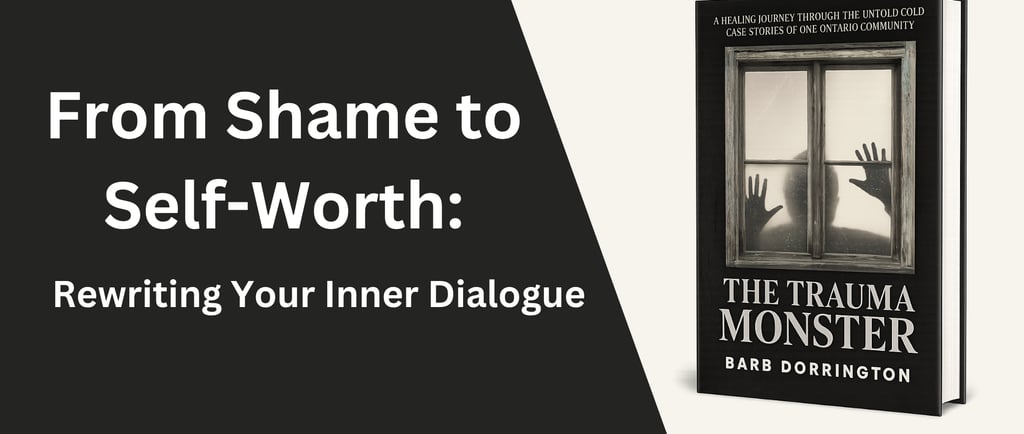From Shame to Self-Worth: Rewriting Your Inner Dialogue
Barb Dorrington
7/7/20252 min read


Shame is one of the most painful and invisible burdens trauma survivors carry. It whispers that you're not enough, not lovable, or somehow to blame for what happened to you. In The Trauma Monster, Barb Dorrington emphasizes how healing requires more than just processing the event—it involves rewriting the toxic inner dialogue shame leaves behind.
Shame often shows up as a harsh inner critic. This voice may echo the judgments or neglect of others, repeating messages like, "You're too much," "You're not good enough," or "You deserved it." Left unchecked, this voice can shape how we treat ourselves, how we show up in relationships, and what we believe we’re worthy of.
But here’s the truth: shame lies. It distorts. And one of the most powerful steps toward healing is learning to challenge that inner voice and replace it with compassion and truth.
Signs You’re Struggling with Shame-Based Thinking:
· Constant self-criticism or negative self-talk
· Feeling unworthy of love, success, or happiness
· Fear of vulnerability or being "found out"
· Difficulty accepting compliments or kindness
· Over-apologizing or downplaying your achievements
Steps to Rewrite Your Inner Dialogue:
1. Notice the Critic
Start by tuning into your self-talk. What does your inner voice say when you make a mistake or feel vulnerable? Awareness is the first step to change.
2. Name the Voice
Give your inner critic a name or identity. This helps you create distance and recognize it as a voice you’ve learned—not a reflection of truth.
3. Challenge the Message
Ask, "Would I say this to a loved one?" If not, why say it to yourself? Look for evidence that contradicts the shameful belief.
4. Replace with Truth
Write down affirming truths. For example: "I am worthy of love and respect," or "My past does not define my value."
5. Practice Self-Compassion
Speak to yourself with the same kindness you'd offer a friend. Use phrases like, "It’s okay to struggle," or "I’m doing the best I can right now."
6. Use Creative Tools
Barb Dorrington encourages survivors to use journaling, poetry, and art to process shame and reclaim their self-worth. Expression is a powerful path to healing.
Rewriting your inner dialogue won’t happen overnight, but every time you challenge the shame and speak to yourself with compassion, you're building a new narrative—one rooted in truth, strength, and worth.
Your voice matters. Your story matters. And you are far more than the shame you've carried. You are worthy, always.


